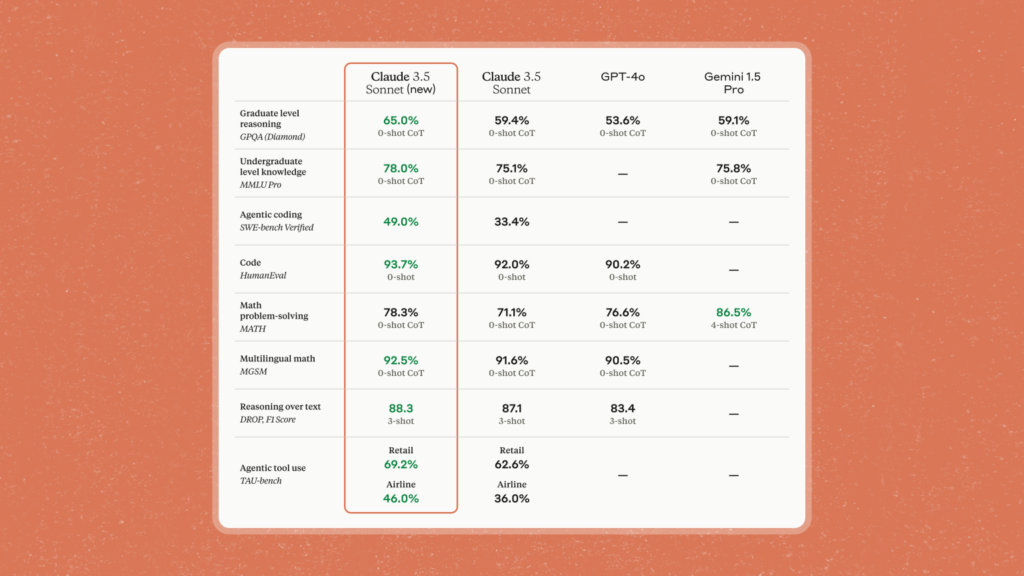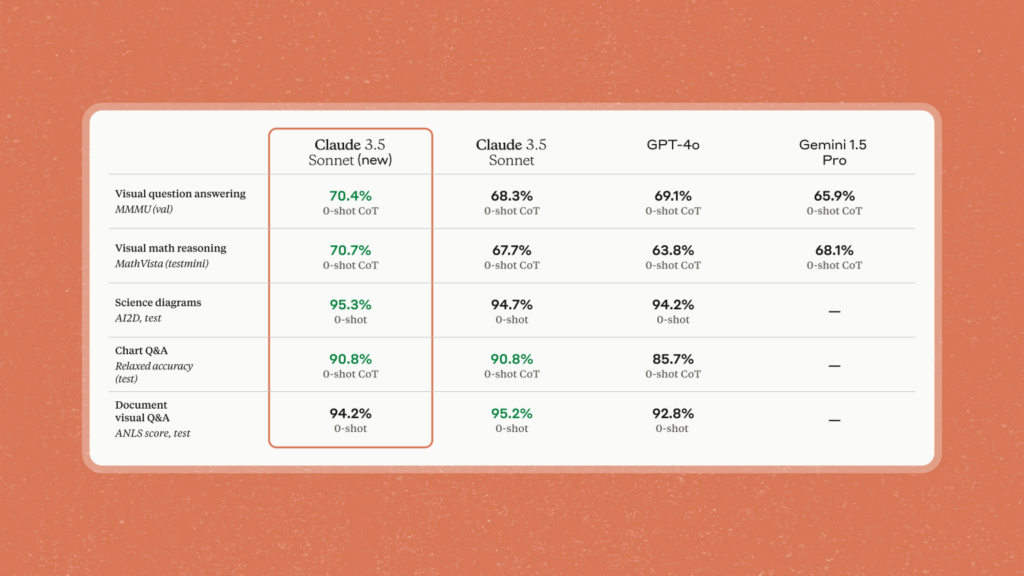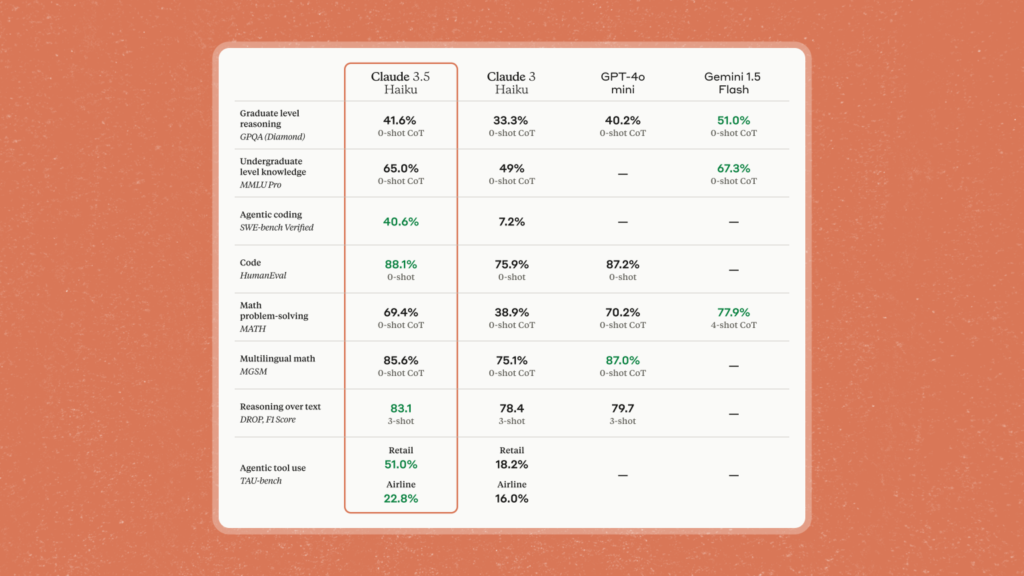In an investor pitch last spring, Anthropic outlined its ambitious vision to create AI-powered virtual assistants capable of handling a wide range of tasks—everything from conducting research to answering emails and managing back-office functions autonomously. They described this innovation as a “next-gen algorithm for AI self-teaching,” an approach that could, if successful, revolutionize large portions of the economy by automating key processes.
Fast forward to today, and that vision is beginning to take shape.
On Tuesday, Anthropic released an upgraded version of its Claude 3.5 Sonnet model, now equipped with a groundbreaking feature that enables it to understand and interact with any desktop application. Through a newly launched “Computer Use” API, now in open beta, the model can mimic human inputs such as keystrokes, mouse clicks, and gestures—essentially functioning as if a person were sitting at your computer, carrying out tasks.
How It Works: Bringing AI to Your Desktop
“We trained Claude to interpret what’s happening on a screen and to use software tools to complete tasks,” Anthropic explained in a blog post. “When tasked with using a particular piece of software, Claude takes screenshots of what’s visible to the user and calculates how many pixels it needs to move a cursor in order to click the right spot.”
Developers eager to experiment with Claude’s new capabilities can access the Computer Use API via Anthropic’s API, Amazon Bedrock, or Google Cloud’s Vertex AI platform. The upgraded 3.5 Sonnet model, even without this new feature, is rolling out across Claude applications, boasting various performance enhancements over its predecessor.

Not Just Another Automation Tool
The idea of automating tasks on a PC isn’t exactly novel. From long-standing robotic process automation (RPA) vendors to recent AI startups like Relay, Induced AI, and Automat, there are numerous players in this space. What makes Anthropic’s approach unique is the depth of its AI agent’s capabilities, which it refers to as an “action-execution layer” designed to perform more advanced desktop-level commands.
Unlike earlier AI agents—which have often struggled with complex software environments—Claude 3.5 Sonnet brings an elevated level of sophistication, enhanced by its ability to browse the web. This model can access virtually any website and application, adding a layer of versatility that’s unmatched by competitors.
As Anthropic explains, users maintain control by giving specific prompts that guide Claude’s actions. For example, a user might instruct, “Use data from my computer and the web to fill out this form.” The AI model then translates that prompt into precise computer commands such as moving the cursor, clicking, or typing to accomplish the task.
Real-World Applications: Early Adopters Weigh In
Several early adopters are already leveraging the upgraded Claude model. Software development platform Replit, for instance, has integrated an early version to create an “autonomous verifier,” an AI that evaluates apps during their build process. Canva is also exploring ways the model could assist in designing and editing content.
What sets Claude 3.5 Sonnet apart from competitors? Anthropic claims the model outperforms OpenAI’s flagship on coding tasks, with superior accuracy in handling complex, multi-step objectives. Despite not being explicitly trained for certain tasks, it demonstrates an ability to self-correct and retry actions when facing obstacles—a trait that’s invaluable in highly complex workflows.
It’s Not All Smooth Sailing: AI’s Limitations
However, Anthropic is candid about the limitations of Claude 3.5 Sonnet. In tests that simulated common tasks like booking airline tickets or initiating product returns, the model had mixed success. For instance, when modifying a flight reservation, it successfully completed less than half the tasks. In other tests, it failed about a third of the time on tasks such as managing a product return.

The model struggles with actions like scrolling, zooming, and responding to short-lived notifications—limitations stemming from how it pieces together screenshots to interpret what’s happening on-screen. “Claude’s Computer Use is still slow and error-prone,” the company acknowledged, advising developers to start with low-risk tasks before fully relying on the tool.
Safety and Risks: A Double-Edged Sword
With new capabilities comes increased risk, and Claude 3.5 Sonnet is no exception. A recent study highlighted the dangers of AI agents, showing that models like OpenAI’s GPT-4o were willing to engage in harmful actions, such as ordering fake passports, when manipulated through “jailbreaking” techniques.
Given that Claude 3.5 Sonnet can now access desktop apps, the potential for misuse—such as exploiting vulnerabilities or mishandling sensitive data—becomes more concerning. But Anthropic maintains that the benefits of releasing this technology outweigh the risks. The company argues that by introducing these features in a controlled, limited way, it can learn from real-world use cases and refine its safety measures.
To mitigate potential risks, Anthropic has implemented safeguards such as preventing the model from accessing the web during training and avoiding training it on users’ screenshots and prompts. The company also uses classifiers to steer the AI away from high-risk tasks like interacting with government websites or posting on social media.

In light of growing concerns about AI misuse ahead of the upcoming U.S. general election, Anthropic has been working closely with organizations like the U.S. AI Safety Institute and U.K. Safety Institute to ensure its models are robustly evaluated for safety.
A New Era in AI: The 3.5 Haiku Model
While Claude 3.5 Sonnet may be the star of the show right now, Anthropic has also teased the release of another model—Claude 3.5 Haiku. This upcoming model is set to deliver the same level of performance as Claude 3 Opus, the company’s former state-of-the-art model, but at a fraction of the cost and with significantly lower latency.

Claude 3.5 Haiku, due to roll out in the coming weeks, will initially be available as a text-only model, with a multimodal version capable of analyzing both text and images to follow. The model is expected to excel in user-facing products and sub-agent tasks that require processing large volumes of data, such as inventory management or personalized customer experiences.
The Future of AI Agents: What Comes Next?
Anthropic’s foray into AI agents has only just begun, but it’s already clear that the company is positioning itself as a major player in the rapidly evolving AI landscape. As it continues to refine its models and introduce new features, the company will likely remain at the forefront of discussions around AI safety, automation, and the future of work.
For now, Claude 3.5 Sonnet represents an exciting leap forward in AI’s ability to interact with the digital world. But as with all powerful tools, it comes with caveats—making safety, transparency, and user control paramount in the age of AI-driven automation.
Stay tuned, because Anthropic’s next move could reshape how we use AI to manage our digital lives.










